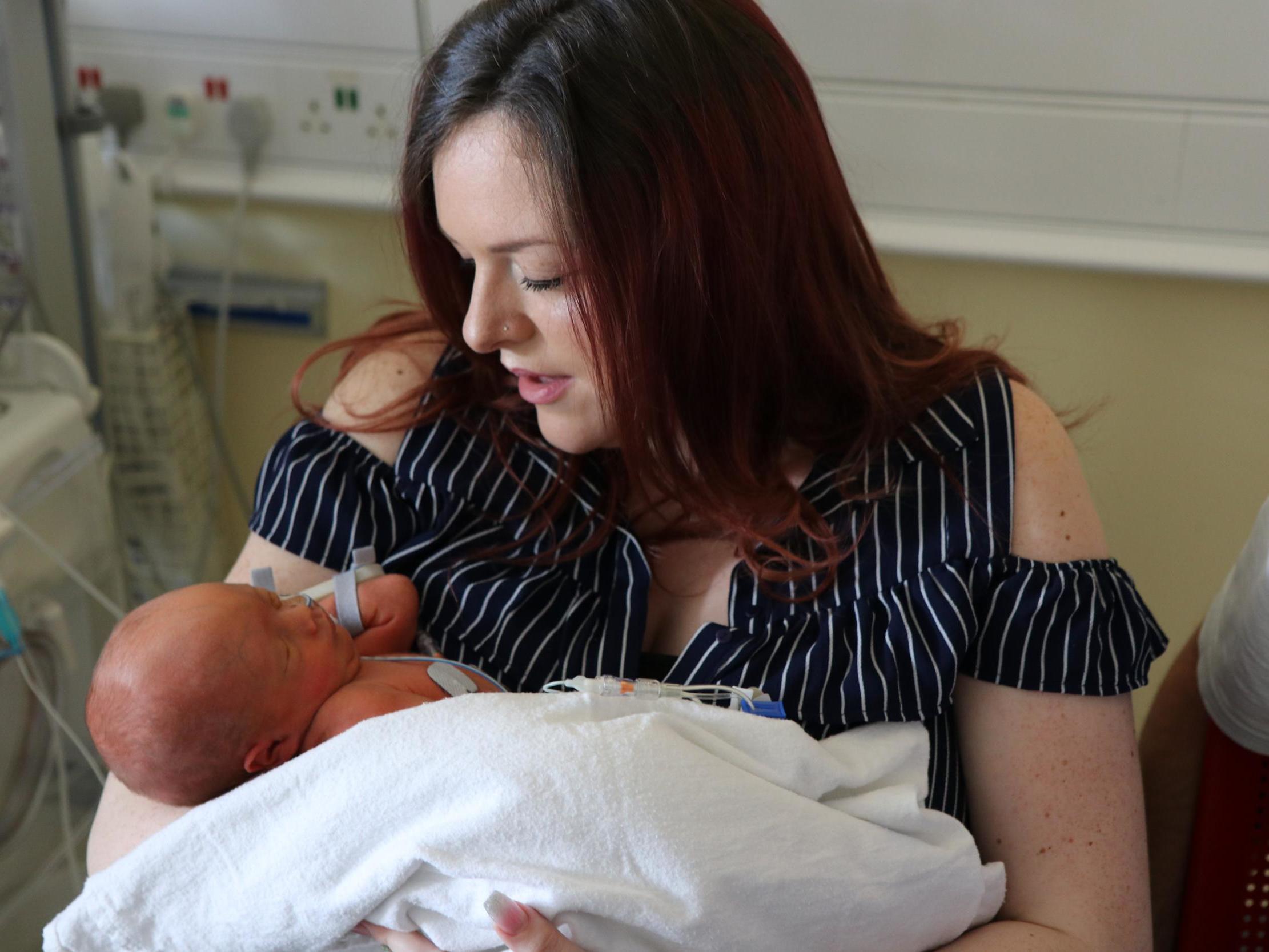Keyhole surgery used to repair baby's spine in womb in UK first
'Very delicate' procedure on unborn foetus could allow child with spina bifida to walk

Your support helps us to tell the story
From reproductive rights to climate change to Big Tech, The Independent is on the ground when the story is developing. Whether it's investigating the financials of Elon Musk's pro-Trump PAC or producing our latest documentary, 'The A Word', which shines a light on the American women fighting for reproductive rights, we know how important it is to parse out the facts from the messaging.
At such a critical moment in US history, we need reporters on the ground. Your donation allows us to keep sending journalists to speak to both sides of the story.
The Independent is trusted by Americans across the entire political spectrum. And unlike many other quality news outlets, we choose not to lock Americans out of our reporting and analysis with paywalls. We believe quality journalism should be available to everyone, paid for by those who can afford it.
Your support makes all the difference.Doctors have used keyhole surgery to repair a baby’s spine while it was still in its mother’s womb in the first operation of its kind in the UK.
Surgeons at King’s College Hospital in London performed the procedure on Sherrie Sharp and her son Jaxson, who has spina bifida, 27 weeks into the pregnancy.
Doctors diagnosed spina bifida after routine 20-week pregnancy scans showed Jaxson’s spine and spinal cord were not forming correctly.
The cord was bulging out of the foetus’s developing spine, which causes damage to crucial nerves and can potentially lead to paralysis, loss of sensation in the legs, and difficulty controlling the bladder and bowels.
Until recently, British surgeons would have waited until after birth to perform the “very delicate” corrective procedure, but evidence suggests operating during the second trimester reduces nerve damage.
While the surgery is not a cure, it cuts the likelihood of long-term health problems associated with spina bifida.
Ms Sharp, 28, from Horsham in West Sussex, decided to undergo the pioneering procedure despite knowing there was a risk of her baby being delivered prematurely.
She told the BBC: “I wanted to do the best for my baby, I wanted him to have a better life and there’s nothing wrong with that.”
During the three-hour operation, surgeons put the spinal cord back in place and used a patch to cover it and prevent spinal fluid leaking out.
Dr Marta Santorum-Perez, a consultant at the hospital’s Fetal Medicine Unit, said: “We are operating on very delicate structures – the foetus’s nerves.
“The foetus is very small and inside the womb, so obviously it’s a very delicate operation.”
Doctors at London’s University College Hospital performed the first invasive surgery to repair spinal defects in two unborn babies in October last year.
But the operation on Jaxson was the first time keyhole surgery has been used on a baby with spina bifida while in still in the womb. The keyhole approach – which uses only tiny incisions and a camera guided through the uterus – is better for the mother and reduces the risk of health problems in further pregnancies.
Bassel Zebian, the consultant neurosurgeon at King’s who led the team carrying out the surgery, said: “The aim of the fetoscopic approach is to reduce the risks to the mother and future pregnancies whilst still ensuring maximal benefit for the baby.”
Jaxson was born almost two months early, at 33 weeks, on 20 April and was cared for in the neonatal intensive care at King’s.
His mother said: “He’s got movements in his legs – we were told he’d have minimal movements if we didn’t have the surgery and he wouldn’t be able to move at all.
“I’ve got high hopes for him, from day one he’s done things, he’s amazed us all. He makes me proud every day, he’s just a miracle.”
Join our commenting forum
Join thought-provoking conversations, follow other Independent readers and see their replies
Comments